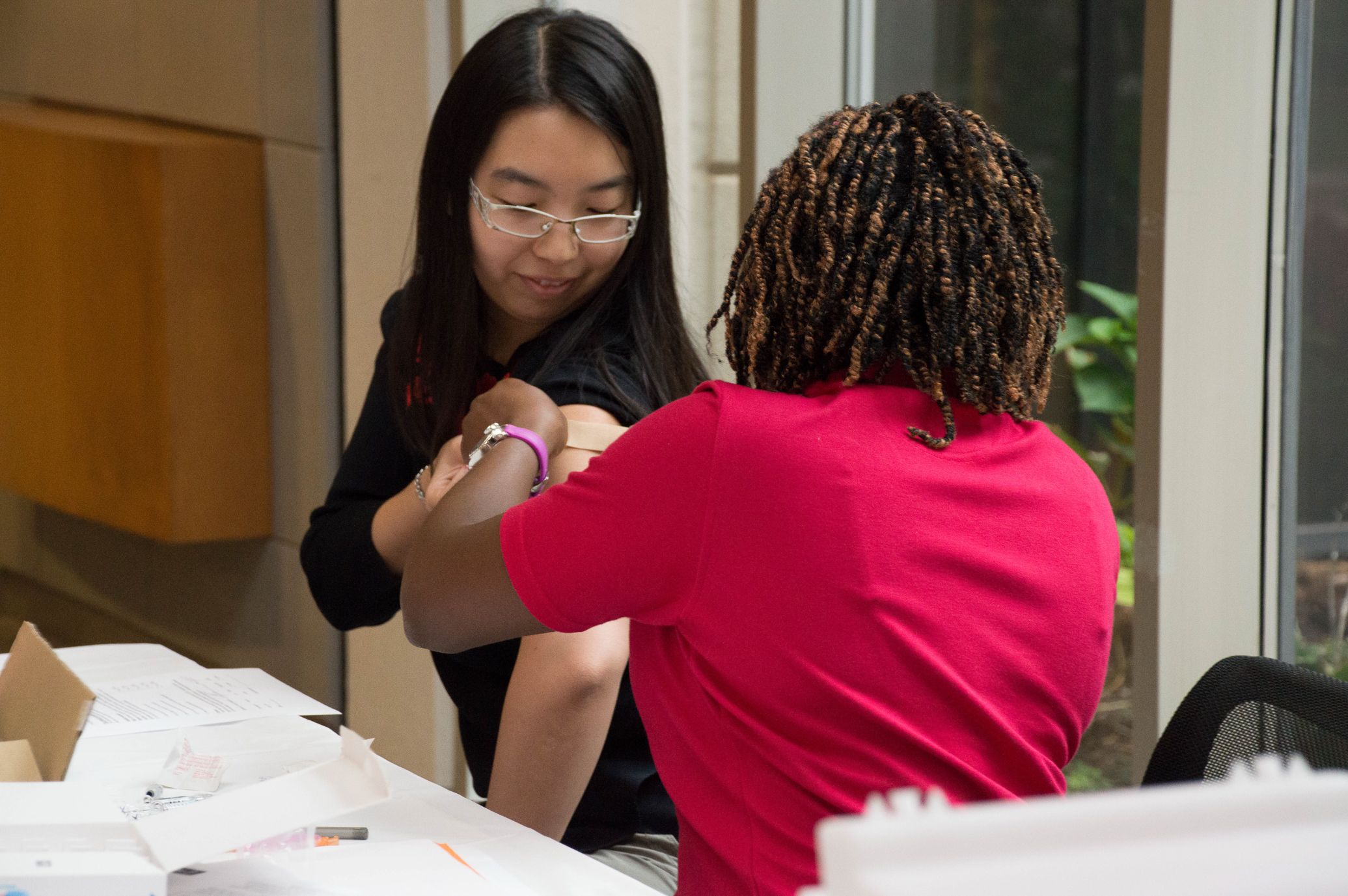
The flu virus can spread like wildfire. It kills roughly 36,000 Americans annually and makes many more miserable.
Even with the potential danger posed by the virus, why do as many as 60 percent of Americans forgo the annual flu shot?
A big factor is the long-held belief that the flu shot itself can give you the flu. But according to scientists at the Oklahoma Medical Research Foundation, this simply is false.
“The flu vaccine that we use now does not have live flu virus in it,” said OMRF President Stephen Prescott, M.D. “The vaccine cannot infect you.”
The vaccine is made from proteins in a lab, not from the virus itself. However, your body’s immune system sees these proteins as foreign and makes antibodies that bind to them to prevent the influenza virus from infecting cells and spreading. This process prepares the body for a rapid immune response to the actual flu virus, often preventing the illness.
But a flu shot can cause mild side effects, and this is where some of the misunderstandings start.
OMRF immunologist Eliza Chakravarty, M.D., said the most common side effects are soreness, redness or swelling around the site of the injection, and some people may occasionally experience a low-grade fever. But, according to Chakravarty, this is no cause for alarm, “It’s just your body doing its job and developing protective immunity.”
These symptoms, though, won’t be anything like the full-blown flu, said Prescott, a physician and medical researcher. “The flu will give you a high fever and muscle aches all over your body. Those symptoms are usually severe, and the disease can be life-threatening.”
Very rarely, a person might get the flu after receiving the flu vaccine, but Chakravarty says not to blame it on the shot.
“In these instances, a person was already exposed to the virus,” she said. “Most likely, they were in an incubation period without symptoms, but the vaccine didn’t cause the illness. This is just coincidental and unrelated to receiving the shot. Essentially, it would just be bad luck.”
If you haven’t gotten vaccinated this year, Chakravarty urges you to do so.
“It’s never too late to get the flu shot,” she said. “We’ve found that the flu can linger within a community longer than we expected, so it’s always a good idea to protect yourself and your loved ones.”














